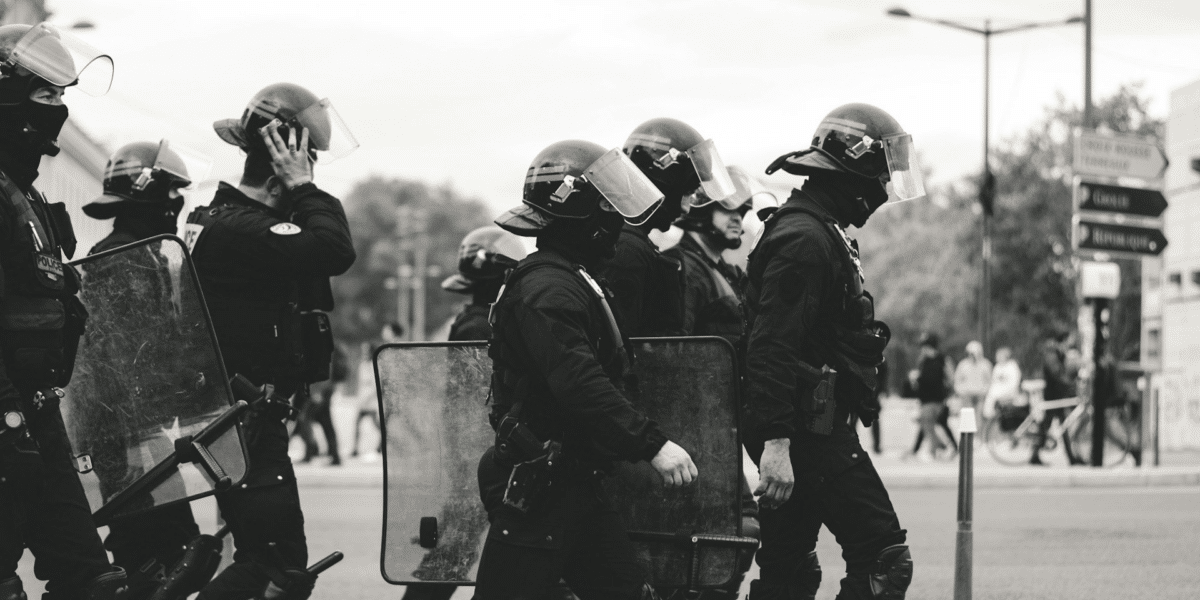New High-Tech Solutions for Virginia Police

Law enforcement agencies in Virginia are increasingly adopting advanced technologies to enhance policing effectiveness, improve public safety, and streamline operations. These innovations range from surveillance tools and artificial intelligence to real-time communication platforms and virtual training programs. While these high-tech solutions are transforming policing, they also raise important ethical concerns about privacy and data security. This article explores the various high-tech solutions being utilized by Virginia police and the challenges they present.
Advanced Surveillance Technology
Body-Worn Cameras
Body-worn cameras are a key tool for improving transparency and accountability in Virginia’s police forces. These cameras record interactions between officers and the public, providing an objective record that can be used in court and for internal reviews. Some of the latest body cameras include real-time video streaming, allowing supervisors to monitor officers in the field as incidents unfold However, managing and storing the large volumes of video data collected presents a challenge, prompting departments to invest in cloud-based storage solutions
Drone Technology
Drones are increasingly being used for aerial surveillance, particularly in situations like search and rescue operations, monitoring large public events, and responding to emergencies Equipped with high-resolution cameras and thermal imaging, drones provide real-time situational awareness, improving officers’ ability to respond effectively While drones offer significant benefits, their use has raised concerns about privacy and civil liberties, especially in cases where surveillance extends beyond public areas
Artificial Intelligence and Predictive Policing
Predictive Crime Mapping
Predictive policing is an emerging technology that uses AI-driven algorithms to analyze crime data and predict where future incidents are likely to occur By identifying patterns and trends, predictive crime mapping helps police departments allocate resources more efficiently, focusing on high-risk areas However, critics argue that predictive policing could exacerbate biases in the data, potentially leading to racial profiling and other ethical issues
Facial Recognition Technology
Facial recognition software is being used by Virginia police to identify suspects in real-time using surveillance footage, body cam recordings, and public cameras This technology helps officers quickly locate wanted individuals or solve cases without relying heavily on manual searches However, concerns over the accuracy and potential misuse of facial recognition technology have prompted calls for stricter regulations
Smart Policing with IoT (Internet of Things)
Connected Patrol Cars
Smart patrol cars equipped with IoT devices such as real-time GPS trackers and Automated License Plate Readers (ALPRs) are helping Virginia police collect and share data more effectively. These systems allow patrol units to instantly access information from databases, helping them respond faster to incidents Additionally, IoT-enabled patrol cars can monitor traffic patterns and detect stolen vehicles, enhancing public safety on the roads
Smart Sensors and Gunshot Detection Systems
Gunshot detection systems are being deployed in urban areas to detect and locate gunfire in real-time These systems alert officers to the precise location of shootings, reducing response times and enabling better situational awareness before officers arrive at the scene This technology is particularly valuable in areas with high levels of gun violence, where quick responses can save lives.
Cybersecurity and Digital Forensics
Cybercrime Response Units
As cybercrime continues to grow, Virginia police are investing in cybersecurity tools to monitor and investigate online threats, such as hacking, fraud, and ransomware Specialized cybercrime units work in collaboration with tech firms to track digital criminals and recover stolen assets This partnership helps police stay ahead of rapidly evolving cyber threats while ensuring they have the latest tools for digital investigations.
Digital Evidence Management
Virginia police are also adopting digital evidence management systems to store and analyze data from phones, computers, and social media AI-powered tools help investigators sift through large amounts of digital evidence, enabling them to find key pieces of information more quickly These systems are essential for handling the growing amount of digital data in modern criminal investigations.
Real-Time Communication and Data Sharing
Police Communication Networks
Secure, cloud-based communication platforms are being implemented to enhance real-time data sharing between local, state, and federal agencies These networks improve coordination during multi-jurisdictional investigations and ensure that law enforcement agencies can work together effectively during large-scale emergencies
Mobile Data Terminals (MDTs)
Mobile Data Terminals installed in patrol cars give officers instant access to criminal databases, allowing them to quickly retrieve information on suspects, vehicle registrations, and outstanding warrants The integration of MDTs with other systems, such as body-worn cameras and ALPRs, enables officers to gather comprehensive data in real-time
High-Tech Training and Virtual Reality (VR) Simulations
VR-Based Training Programs
Virginia police are incorporating virtual reality (VR) simulations into their training programs, allowing officers to practice responding to real-world scenarios in a controlled, immersive environment These simulations include active shooter situations, crisis management, and de-escalation techniques, helping officers improve their skills in high-stress situations
Body-Worn Camera Analytics for Training
Video footage from body-worn cameras is now being used to analyze officer behavior during interactions with the public. AI-assisted analysis helps departments identify areas where training can be improved, such as de-escalation tactics This data-driven approach allows for continuous improvement in police practices and training methods
Challenges and Ethical Concerns
Privacy and Civil Liberties
The increased use of surveillance technologies, such as drones, facial recognition, and body-worn cameras, has sparked debates about privacy rights and the potential for government overreach Balancing public safety with individual freedoms is a critical challenge for law enforcement agencies as they adopt these technologies
Data Security and Hacking Risks
As police departments collect and store more data, including video footage and digital evidence, they become targets for cyberattacks Protecting this sensitive information is essential for maintaining public trust and ensuring that law enforcement operations are not compromised
The adoption of high-tech solutions by Virginia police is revolutionizing law enforcement in the state, enhancing efficiency and improving public safety. From advanced surveillance and AI-powered tools to smart patrol cars and digital forensics, these technologies offer significant benefits.

